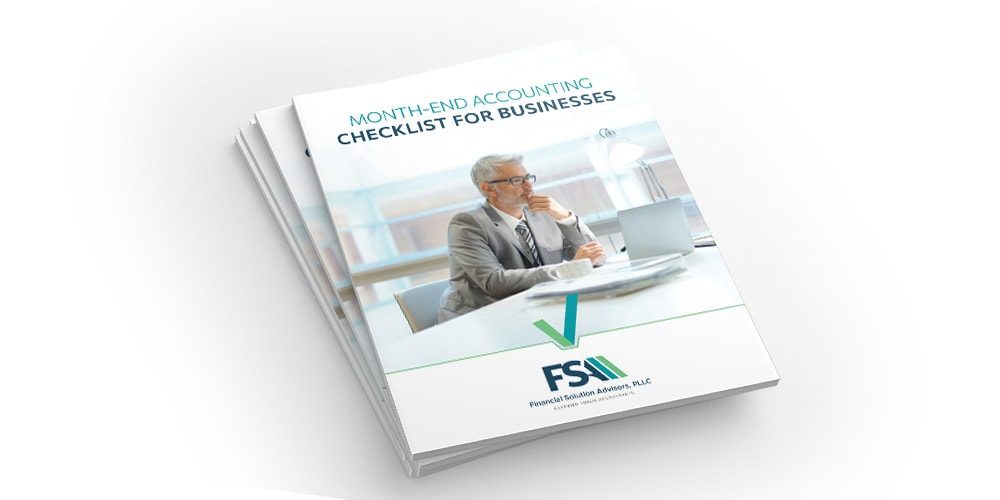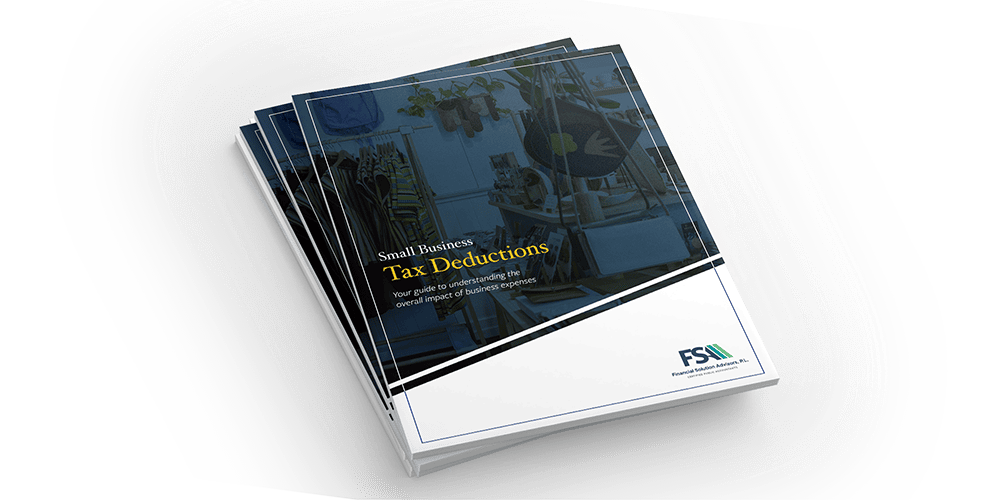As the year winds down, your accounting needs to ramp up. There are tasks, major and minor, that will ensure your business is ready for a fresh start in the new year. The problem for many small business owners is that year-end tends to be the busiest time of the year, leaving those tasks on the back burner.
It can seem overwhelming, with so much to complete in so little time. Where do you start? What needs to be accomplished? How do you prepare for the new year?
Below you will find a year-end checklist for small business owners, along with tips for starting the new year on the right track. The checklist can ensure you are aware of what needs to be done and can take advantage of our best tips for getting started.
Top 4 small business year-end checklist tasks for small businesses
1. Ensure you have a complete picture of your taxable income
Many business owners who’ve closely watched their P&L reports throughout the year are surprised by their taxable income. Remember, personal expenses paid out of the business account and shareholder distributions don’t show up on your P&L, but they do move money out of your bank account—and they count toward your taxable income. Loan principal payments can also be misleading. If you’re making payments on an asset that you’ve already depreciated, those payments aren’t deductible expenses (although the interest is a valid deduction).
Remember, there’s more to understanding your taxable income than what shows on your P&L statement. We recommend our clients utilize their cloud accounting apps to regularly pull financial reports, including P&L statements, to have an accurate picture of the business’ financial health throughout the year.
2. Clean up and reconcile your business books
If you haven’t locked down your books throughout the year, take the time to do so now. Review important financial documents like your income statements, balance sheets, cash flow statements, and profit and loss statements.
TOP TIPS:
- Never post or adjust entries in prior years. Address any past mistakes in this year’s books. Never change a past year, unless you’re amending that year’s tax return.
- Reconcile bank and credit card accounts. Hopefully, you’re used to reconciling bank statements. Are you doing the same for your business credit cards? Although you pay credit card balances in a monthly lump sum, the individual expenses should be booked to the proper accounts.
- Reconcile loan balances against statements. Again, keeping up with these reconciliations throughout the year will save you time at year-end.
- Here’s what to do with uncleared bank checks at fiscal year-end.
By cleaning up your books, you’ll be better prepared for tax season, and you won’t be hit with a hefty fee for data clean-up work. You should review uncleared checks, resolve any discrepancies, and ensure all liabilities have been settled. If you’re self-employed, ensure that you have paid all estimated taxes; if you have employees, double-check that all payroll taxes have been remitted.
Cloud-based accounting software like Xero and Quickbooks offers the ability to lock down the books as of a specific date. This helps safeguard historical data and prompts you to consider the date of entry if you attempt to enter a transaction in a prior period. If you’re struggling to find the time for bookkeeping every month, send us a message. We offer business bookkeeping services and can help you migrate to the cloud to allow for virtual, secure collaboration.

Streamline your month-end accounting process with our comprehensive checklist.
Download our free Month-End Accounting Checklist to take control of your month-end close.
3. Start organizing documents you’ll need at tax time
If you’ve made significant purchases in the past year, collect and organize the documents your accountant will need to create a depreciation schedule. Don’t forget to include documentation of related loans. It’s also a good idea to create a folder for the tax mail that you’ll receive in January.
Did you pay any contractors this year? Collect the information you’ll need to file 1099s in January. And don’t forget about Form W-8BEN for international contractors.
Don’t forget that many business expenses are tax-deductible. No matter how small they may seem, expenses can add up over the year and help to reduce your tax burden. Ensure you have receipts and invoices saved or uploaded to your cloud accounting tool for easy access. If you haven’t yet entered them into your system, do so now.
As you get your documents together, schedule a year-end tax planning meeting with your CPA. You may still be able to take advantage of valuable tax-planning strategies, particularly if you made any big money moves this year.

Small business tax deductions – free download!
We’ve put together a comprehensive guide of the top small business tax deductions that will leave you feeling relieved this tax season.
4. If your business is an S-Corp, notify your payroll company of your owner benefits
S-corp shareholders who hold 2% or more of the company need to report their benefits (health insurance, auto insurance, etc.) on their W-2s. If your payroll company handles these, make sure they’re aware of the appropriate numbers.
You may also be interested in: The benefits of using a payroll app.
6 year-end checklist tasks to prepare your small business for the new year
1. Set a business budget
Preparing for the new year wouldn’t be complete without setting a business budget. To accurately develop a budget for the year, you will want to take a look at your financial statements to examine your revenue, expenses, and current assets. From your cloud-based accounting system’s dashboard, you can pull monthly and yearly reports at the click of a button.
Tips for setting a business budget
The truth is that you need to spend money to make money, but your expenses will vary depending on the nature of your business. For instance, if you keep inventory on hand, your budget will need to account for that.
When setting a budget, take inventory of what the business already has, additional staff that may need to be hired, and any large purchases that need to be made (such as new technology, furniture, or even real estate). Remember to evaluate budgets throughout the year, especially if there is sudden growth or unexpected expenses. In most cases, business expenses will qualify as tax deductions.
2. Set sales goals
When pulling reports for budgeting, be sure to keep them on hand to set sales goals. Based on previous sales figures, goals, and growth, the company should have a foundation to set realistic, achievable sales goals.
Not sure how to set a small business sales goal? Working with an outsourced CFO can provide the financial expertise needed to create projections and set sales goals and budgets. Outsourced CFOs are a great option for smaller businesses, those just launching, or those in need of temporary assistance—they don’t come with the financial burden of a full-time hire. Outsourced CFOs can provide services on a part-time or interim basis and accommodate a range of budgets.
3. Update technology to manage your business finances
There’s no better time than the present to find areas of opportunity. As a business owner, consider how you can tap tech to increase productivity. Can you automate any processes? Investing in technology can be one of the best ways to improve the business and give you back valuable time.
For example, cloud-based accounting apps can automate repetitive tasks, such as expense reporting, payroll taxes, and data entry. Adopting cloud-based accounting apps gives business owners a real-time picture of their business from anywhere at any time. Make it your New Year’s resolution to save time and money going into the new year by integrating cloud-based accounting solutions into your back office.
4. Set a proactive tax and financial strategy
If you haven’t already done so, schedule a time to speak with your CPA about a proactive tax strategy. A year-end tax planning meeting will include a tax projection so you know what’s coming in the spring. From there, you can estimate future taxes owed and make a plan that provides for tax-saving opportunities.
If you’re projecting a substantially successful year, you may want to consider large purchases for the company, such as equipment upgrades or other deductible expenses that will not only benefit the business and its employees but also the tax picture. A word of caution: if you’re making large purchases to reduce your tax bill, be sure to consult with your CPA and understand the allowable deduction.
5. Collect W-9s
One crucial aspect of year-end preparations for small businesses involves collecting W-9 forms from any contractors or freelancers you’ve worked with throughout the year. Many people overlook this step, but it can save you time and potential fines down the line.
Getting W-9s promptly can make a significant difference in your year-end accounting process by saving you from last-minute scrambles and preventing costly mistakes. Requesting W-9s promptly also shows professionalism and helps maintain positive relationships with contractors. Upon receipt of the information, be sure to update it within your accounting file.
6. Don’t forget to send 1099s
If your business uses the services of contract employees or freelancers, don’t let 1099s slip through the cracks. Make sure you have collected all the necessary information needed to send out 1099s in January. If you’re unable to send out a 1099 to the contractor and IRS, you will be at risk of fines and penalties for non-compliance.
You may also be interested in: 10 essential steps to prepare your business for year-end
A successful new year starts with an end-of-year accounting checklist
Preparation is key to helping you take advantage of valuable tax deductions and create a clear picture of your business finances and business goals. Take time to review this year-end checklist for small business owners. If you need assistance with year-end small business accounting, or preparing for the new year, send us a message. Your business’ financial health is our mission.
You may also be interested in: What you need to know about the Beneficial Ownership Information filing requirement

